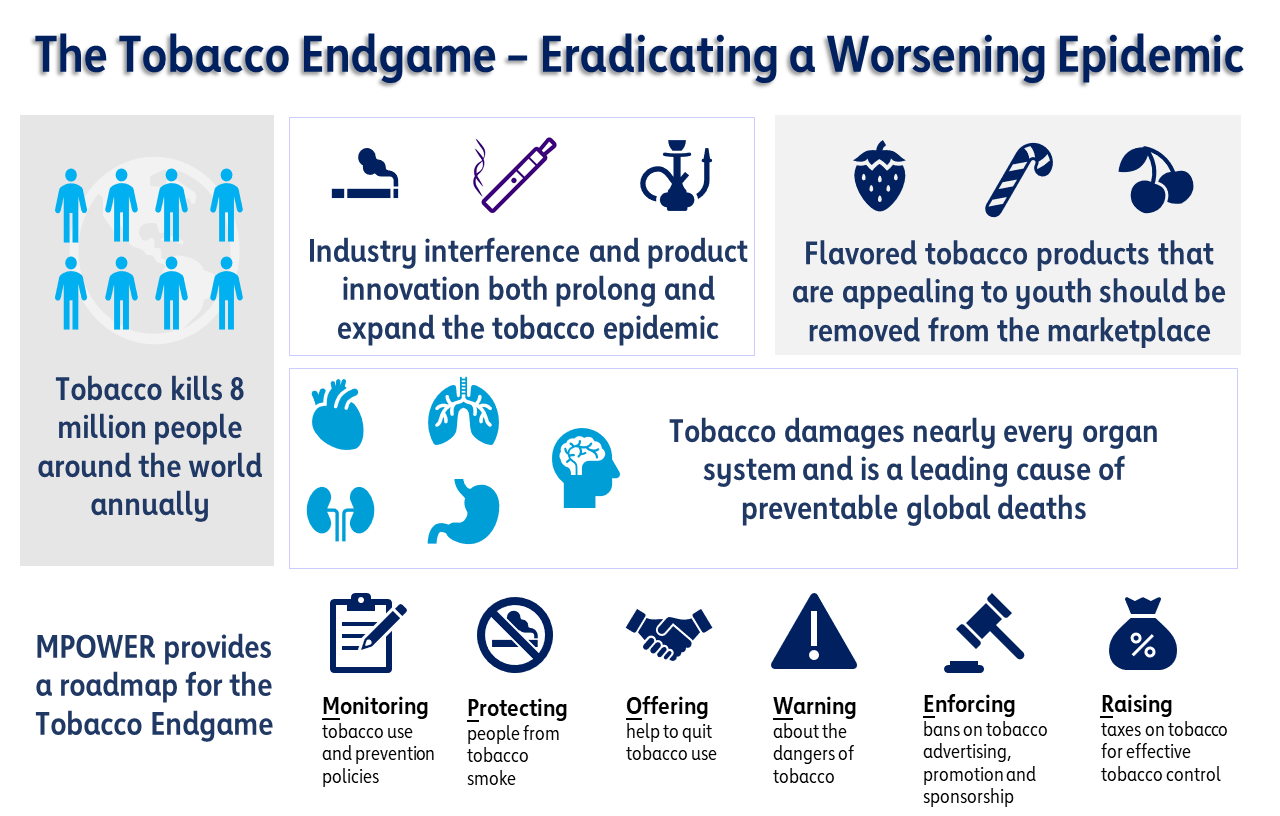ACC, AHA, ESC, WHF Release Joint Opinion on Achieving the 'Tobacco Endgame'

Tobacco use continues to be a primary contributor to the global burden of disease, causing an estimated 12% of deaths worldwide among people aged 30 and over. A joint opinion released May 26 by the ACC, American Heart Association, European Society of Cardiology and World Heart Federation, calls for greater action at the global scale to end the tobacco epidemic once and for all.
The organizations are urging governments to take immediate action to implement the World Health Organization's MPOWER framework, which outlines six essential policy approaches proven to reduce tobacco use: monitor tobacco use and prevention policies; protect people from tobacco smoke; offer help to quit tobacco use; warn about the dangers of tobacco; enforce bans on tobacco advertising, promotion and sponsorship; and raise taxes on tobacco.
The joint opinion outlines comprehensive tobacco prevention strategies that are necessary to fully implement the MPOWER framework, including:
- Lowering the nicotine concentrations in all combustible tobacco products.
- Further research to understand the health impacts of nicotine on the cardiovascular system and the long-term effects of electronic cigarettes.
- Enforcement of strong systems and premarket assessments of all tobacco products.
- Strong regulation of tobacco industry marketing to ensure false health claims are not made about products that have not been thoroughly researched and authorized through regulatory review.
- Greater global action to remove all non-tobacco flavored products from the market.
- Raising the price of all tobacco products, through excise taxes and other means.
- Youth-targeted counter-marketing campaigns to effectively reduce tobacco use among youth.
- Access to comprehensive, evidence-based cessation services as a safer alternative for adults who wish to quit smoking combustible cigarettes.
Despite global reductions in tobacco use, the growing popularity of electronic cigarettes and other newer tobacco products that appeal to youth with flavorings threatens progress toward ending tobacco use and nicotine addiction – the "tobacco endgame." Countries must effectively regulate electronic cigarettes and other emerging tobacco products to protect young people and improve public health worldwide.
"Nicotine can cause serious health risks to the cardiovascular system at all stages of life," said Athena Poppas, MD, MACC, immediate past president of the ACC. "Nicotine may increase a person's blood pressure, heart rate and flow of blood to the heart, narrow the arteries and harden the arterial walls, which in turn can lead to a heart attack. Nicotine also impacts brain development and poses dangers to youth, pregnant women and the developing fetus. There needs to be a greater understanding of the impacts of nicotine on cardiovascular health and nicotine delivery products on children and youth to inform further treatment and regulatory approaches to nicotine."
"The evidence-based strategies that have been successfully implemented in countries around the world, from government regulation to tobacco taxes to funding for prevention and cessation programs, would make an enormous difference if implemented on a global scale," adds Mitchell S. V. Elkind, MD, MS, president of the American Heart Association. "The time is now to redouble our efforts to reach the tobacco endgame by ending tobacco use and nicotine addiction worldwide."
The joint opinion is being published simultaneously in the Journal of the American College of Cardiology, the Journal of the American Heart Association, the European Heart Journal and Global Heart.
Clinical Topics: Prevention
Keywords: Tobacco, Smoking Cessation, Blood Pressure, Public Health, Myocardial Infarction, Secondary Prevention
< Back to Listings
